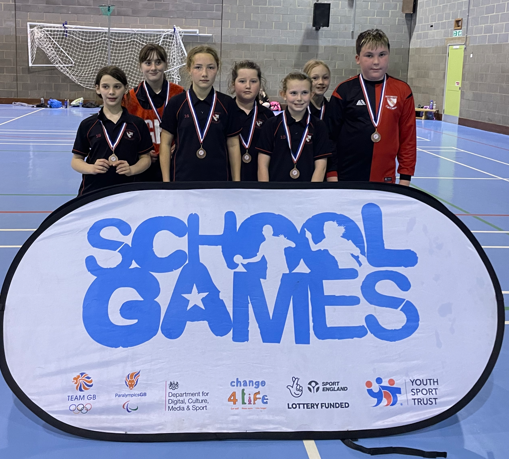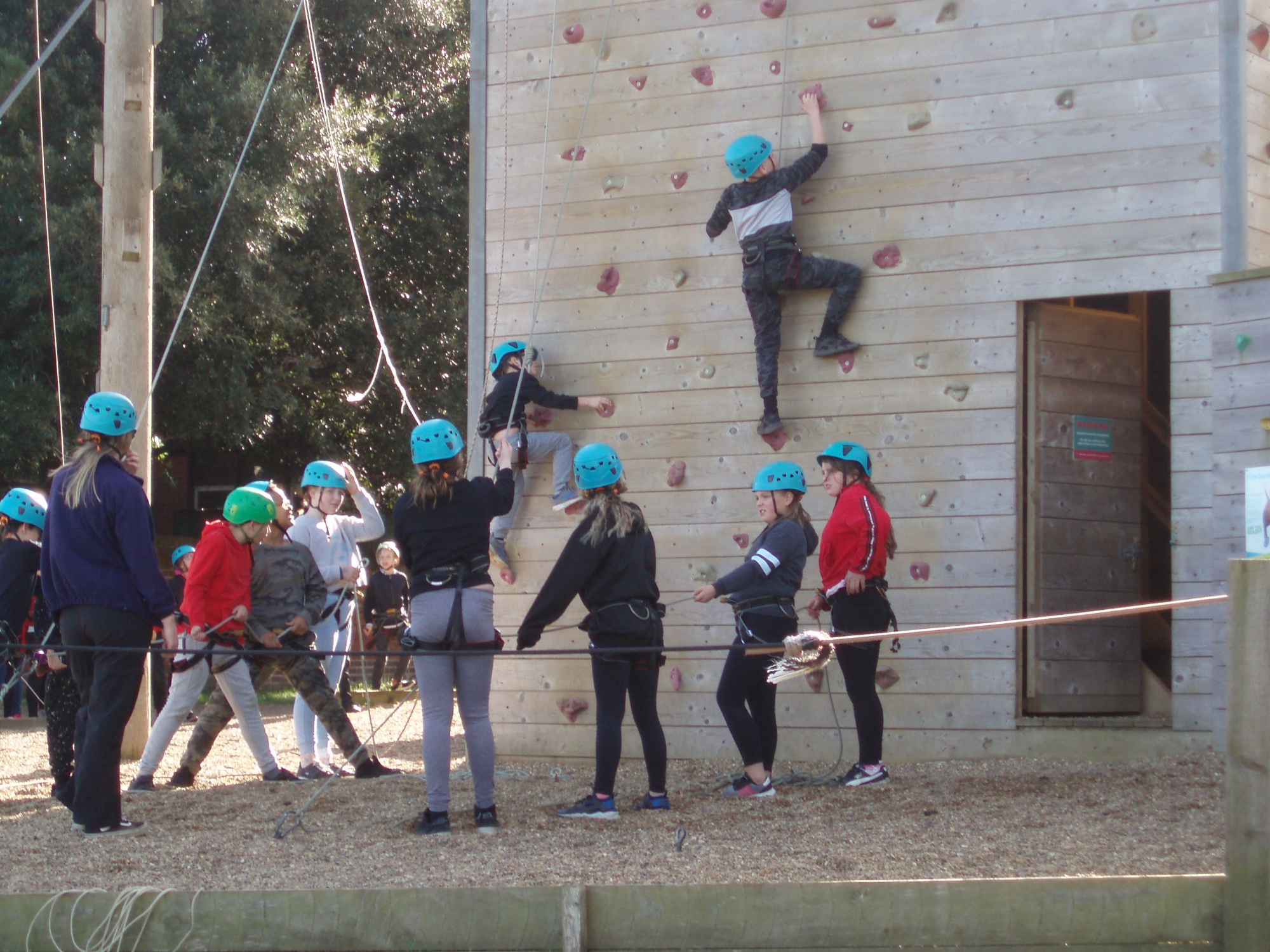SEN Information Report
Butterwick Primary School’s Special Educational Needs and Disability Information Report
What is the SEN&D Local Offer?
Lincolnshire County Council has to set out a local offer of all services available to support children who have SEN&D (special educational needs and/or disability) and their families. The local offer will enable families to understand what services they can access and what support they can expect from a range of local agencies, including from the local authority, health services, schools, leisure services and the voluntary sector. The offer will include provision from birth to 25, across education, health and social care. It will also help professionals working with families to find the right information.
The Local Offer is part of the Special Educational Needs and Disability (SEN&D) reforms from the Children and Families Act 2014 that the government has put in place to help bring about improvements. One of these is the ‘Local Offer’. The Act wants to improve information about services available, and make it easier for all families to find them. The Local Offer simply aims to pull information about available services into one place and make it clear and accessible for enquirers.
Lincolnshire has a family services directory that lists all currently available services which can be accessed via. Lincolnshire’s Local Offer includes leisure and activity providers, health and care services, education providers and support groups.
Where Can I Find It?
The Lincolnshire Authority Local Offer is available on-line via the following web address http://search3.openobjects.com/kb5/lincs/fsd/home.page
You can also contact either the Family Information Service or Parent Partnership and they will help you find what you need, or if you need additional support with the website.
- Family Information Service tel. 0800 195 1635 (Mon-Fri 8am-6pm) email.
- Parent Partnership tel. 01522 553351
As part of these reforms all schools have to publish their own ‘SEN&D Information Report’ outlining what provision they will provide.
The potential outcomes of the Local Offer are:
- To provide clarity and confidence for parents.
- To support earlier intervention.
- To reduce the need for assessment.
- To identify need and gaps in provision.
- To provide evidence base for improving progress and securing better outcomes, at school and local level.
SEN&D Information Report for Our School.
Our school’s approach to meeting the needs of pupils with Special Educational Needs and/or Disabilities are detailed below and are supported by the Local Authority to ensure that all pupils, regardless of their specific needs, make the best possible progress in school. We aim to be as inclusive as possible, with the needs of pupils with Special Educational Needs and/or Disabilities being met in our school setting wherever possible, where families want this to happen.
Roles and Responsibilities
Class/Subject Teacher:
Responsible for:
- Checking on the progress of your child and identifying planning and delivering any additional help your child may need (this could be things like targeted work, additional support) and letting the SENCO know as necessary.
- Writing an individual education plan (IEP) and sharing and reviewing these with parents at least once each team and planning for the next term.
- Ensuring that all staff working with your child in school are able to deliver the planned work/programme for your child, so they can achieve the best possible progress. This may involve the use of additional adults, outside specialist help and specially planned work and resources.
- Ensuring that the school’s SEN&D Policy is followed in their classroom and for all the pupils they teach with any SEN&D
The SENCO (Mr Huck):
Responsible for:
- Coordinating and overseeing all the support for children with Special Educational Needs and/or Disabilities (SEN&D) and developing the school’s SEN&D Policy to make sure all children get a consistent, high quality response to meeting their needs in school.
- Updating the school’s SEN&D register (a system for ensuring all the SEN&D needs of pupils in this school are known) and making sure that there are excellent records of your child’s progress and needs.
- Facilitating specialist support and training for teachers and support staff in the school so they can help children with SEN&D in the school achieve the best progress possible.
- Ensuring that you are:
- Involved in supporting your child’s learning.
- Kept informed about the support your child is getting.
- Involved in reviewing how they are doing.
Head Teacher (Mrs Towers):
Responsible for:
- The day to day management of all aspects of the school, this includes the support for children with SEN&D.
- The Head Teacher will give responsibility to the SENCO and the class teachers but is still responsible for ensuring that your child’s needs are met.
- The Head Teacher, in conjunction with the SENCO, must make sure that the Governing Body is kept up to date about any issues in school relating to SEN&D.
SEN&D Governor: (Mrs Helen Dower)
Responsible for:
- Making sure that the necessary support is made for any child who attends the school who has SEN&D.
- Meets regularly, at least once per term, to discuss any issues regarding special educational needs at Butterwick Primary School.
- Ensures that the policy is up to date and is reviewed annually
Questions
- How can I let the school know I am concerned about my child’s progress in school or if I think my child has special educational needs and/or a disability?
- At our school, the process is to discuss any concerns you may have about your child with the class teacher in the first instance. Further involvement may then include the SENCO who will support both you, your child and school staff to look at the next steps. This may then lead to request for further advice and support from external agencies.
- How will school respond to any concerns?
- The class teacher will arrange time to listen to your concerns, share information between home and school and set up further meetings if needed. Further support may be necessary and will include the SENCO if it is felt that this is required. A course of action will be discussed and a plan agreed, which may involve setting specific targets. Follow up meetings to review progress will be held within a reasonable time scale. If you are not happy that the concerns are being managed and that your child is still not making progress then the next step is to speak with the Headteacher.
- How will school decide if your child needs extra support?
- Our school will use the following cycle of Assess, Plan, Do and Review cycle for all children. Class teachers will use their ongoing assessments (both formal and informal) to monitor individual children and will identify any gaps in children’s learning and adjust their teaching as necessary. This could lead to additional support or interventions from teaching assistants. If your child is then identified as still not making progress the school will set up a meeting to discuss this with you in more detail and to listen to any concerns you may have and plan any additional targets and support your child may receive (see question 2). This may involve the use of outside agencies; with parental agreement. We want the emphasis to be on working together (child, school, outside agencies and parents/carers)
- What are the different types of support available for children with SEN at Butterwick?
- Class teacher input via excellent targeted classroom teaching also known as Quality First Teaching.
For your child this would mean: - That the teacher had the highest possible expectations for your child and all pupils in their class.
- That all teaching is based on building on what your child already knows, can do and can understand.
- At times the teacher may direct the class based Teaching Assistant to work with your child as part of normal working practice.
- Different ways of teaching are in place so that your child is fully involved in learning in class. This may involve things like using more practical learning.
- Specific strategies (which may be suggested by the SENCO or outside staff) are in place to support your child to learn.
- Your child’s teacher will have carefully checked on your child’s progress and will have decided that your child has gaps in their understanding/learning and needs some extra support to help them make the best possible progress.
- All children in school should be getting this as part of excellent classroom practice when needed.
- Specific group work within a smaller group of children.This group, often called intervention groups, may be:
- Run in the classroom or outside, in other smaller rooms or areas around the school.
- Run by a teacher or most often a Teaching Assistant who has had training to run these groups.
- For some children, this extra support s sufficient for them to catch up to their peers and would not mean they need further support. However, for some children the intervention may not have been successful and a more targeted approach may then be needed. To address particular difficulties the child my face. Children who require extra school based SEN support This means they have been identified by the class teacher as needing some extra support in school. For your child this would mean: • He/she will engage in group sessions with specific targets to help him/her to make progress. This could be linked to an individual education plan (IEP)
- A teaching/learning support assistant or teacher or outside professional will run these individual or small group sessions using the teacher’s plan.
- This type of support is available for any child who has specific gaps in their understanding of a subject/area of learning.
- The class teacher will review progress on a Termly basis with the child and parent/carer and plan new targets, if needed. Children requiring SEN support (with outside agency involvement). Who else might be involved in supporting my child? This means they have been identified by the SENCO as needing some extra specialist support in school from a professional outside the school.
- This may be from:
- Local Authority central services such as Autism outreach services, Sensory Education Support Service (for pupils with a hearing or visual need).
- Speech and Language therapy Service (SALT).
- Educational Psychologists
- STAPS (specialist teachers and applied psychology service)
- CAMHS (Child and Adolescent Mental Health Services.)
- School nurse
- Pathways (for children with behaviour difficulties)
- Community Paediatrician
- Social and Communication Outreach Service
- For your child this would mean:
- Your child will have been identified by the class teacher or SENCO (or you will have raised your own concerns) as needing more specialist input instead of or in addition to quality first teaching and intervention groups.
- You will be asked to come to a meeting to discuss your child’s progress and help plan possible ways forward.
- You may be asked to give your permission for the school to refer your child to a specialist professional e.g. a Speech and Language Therapist or Educational Psychologist. This will help the school and yourself understand your child’s particular needs better and be able to support them better in school.
- The specialist professional will work with your child to understand their needs and make recommendations, which may include:
- Making changes to the way your child is supported in class e.g. some individual support or changing some aspects of teaching to support them better.
- Support to set better targets which will include their specific expertise.
- A group run by school staff under the guidance of the outside professional e.g. a social skills group.
- A group or individual work with outside professional.
- The school may suggest that your child needs some individual support in school. They will tell you how the support will be used and what strategies will be put in place. This type of support is available for children with specific barriers to learning that cannot be overcome through Quality First Teaching and intervention groups. Specified Individual Support This is usually provided via a Statement of Special Educational Needs or an Education, Health and Care Plan (EHCP). This means your child will have been identified by the class teacher or SENCO as needing a particularly high level of support or small group teaching (the amount of hours will be specified by a Statement of Special Educational Needs or EHCP), which cannot be provided from the budget available to the school. Usually your child will also need support from professionals outside the school.
This may be from: - Local Authority central services such as the ASD Outreach Team or Sensory Service (for students with a hearing or visual need).
- Outside agencies such as the Speech and Language therapy (SALT) Service. For your child this would mean: The school (or you) can request that the Local Authority carry out a statutory assessment of your child’s needs. This is a legal process which sets out the amount of support that will be provided for your child. After the school have sent in the request to the Local Authority (with a lot of information about your child, including some from you), they will decide whether they think your child’s needs (as described in the paperwork provided) seem complex enough to need a statutory assessment. If this is the case they will ask you and all the professionals involved with your child to write a report outlining your child’s needs. If they do not think your child needs this, they will ask the school to continue with the support with outside agency involvement. After the reports have all been sent to the Local Authority (L.A.) the L.A. will then decide if your child’s needs are severe, complex and lifelong and that they need more specified extra support in school to make good progress. If this is the case they will write a Statement of Special Educational Needs or Education Health Care Plan (EHCP). If this is not the case they will ask the school to continue with the support with outside agency involvement and also set up a meeting in school to ensure a plan is in place to ensure your child makes as much progress as possible. The Statement or EHCP will outline the number of hours of individual/small group support your child will receive from the LA and how the support should be used and what strategies must be put in place. It will also have long and short term goals for your child. The additional adult may be used to support your child with whole class learning, run individual programmes or run small groups including your child.
This type of support is available for children whose learning needs are: - Severe, complex and lifelong
- Need more than a specified number of hours support in school
- Who will support my child in school?
- We have fully trained teachers in school, experienced teaching assistants and volunteers. We also have a learning mentor whose role is to support children’s emotional and behavioural difficulties. In addition the school has access to fully trained support form external agencies should the need arise. We also use volunteers who listen to children read and support teachers in class. (Also see question 4)
- What training do staff receive?
- All staff have, as part of their role, to undertake continuing professional development which involves in school training and attending courses away from school. The whole teaching staff have had training in dyslexia friendly teaching, autism awareness and PIVATS. All staff have received safeguarding training and e-safety training. Team Teach training, which teaches staff how to decelerate behaviour of individual children and how to use positive handling strategies and techniques when/if needed. A number of teaching assistants are trained to use precision teaching, lifting and handling, leading educational visits, and safeguarding children. Staff are also expected to attend and complete specific training in areas such as diabetes, basic 1st aid, administering of epipens. Teaching assistants have also had training in the delivery of a range of interventions. Further training may be provided depending on the needs of the children.
- What support is there for my child’s emotional and social well-being?
- Day to day pastoral support is provided by all staff but in the main by class teachers and teaching assistants. The school rules, including rewards and sanctions, are used consistently to support children’s behaviour. We also employ a learning mentor to further support the children at our school, where appropriate.
- How is my child able to contribute their views?
- All children are encouraged to give their views individually with their class teachers and support staff including the learning mentor, should they need it, at all times. The child’s views are also taken into account at all review meetings when discussing progress and the next steps in their learning. There is also a school council member in each class with whom they can raise any concerns or issues.
- What support do we have for you as a parent or carer of a child with SEN&D?
- Class teachers are readily available to discuss your child’s progress or concerns you may have and to share information about what is working well at home and school so similar strategies can be used. The SENCO is also available to meet with you to discuss your child’s progress, concerns or worries you may have. If it is felt that further support is needed from professionals away from school we will discuss this fully with you before any referrals are made. Any reports or guidance given will be shared and discussed with you. Regular review meetings will be held to monitor progress and discuss how things are going. We may also use home/school diaries to help maintain a positive dialogue between home and school.
- How will the curriculum be matched to my child’s needs?
- Staff differentiate and adapt their lessons to suit the children’s needs. Planning and teaching will be adapted on a daily basis, if needed, to meet your child’s learning needs. For those children needing extra support there are intervention programmes that are run by teachers or support staff. Individual programmes of support are also matched to pupils where needed. We use advice given by outside agencies to further support individual learners and also have resources in school to provide more individual support. Teachers use ongoing assessment to plan targeted support. This may include extra provision and interventions, for example: precision teaching, paired reading, Toe By Toe, Nessy learning programme.
- How does our school know how well your child is doing?
- Children’s progress is tracked on a Termly basis in reading, writing, maths and spelling using formal and informal assessments. Children in reception are assessed using Early Learning Goals. Any children who are working significantly below age expectations are assessed using PIVATS (Performance Indicators for Value Added Target Setting) and progress is measured over the year and compared with age related expectations.
- How accessible is the school environment?
- The school is fully accessible and has wheelchair access throughout the building; we also have a purpose built disabled toilet and changing area and a second disabled toilet. We also have use of specialist hoist equipment for children in wheelchairs. We have close links with the Occupational Therapy and Physiotherapy services who are able to suggest adaptations, as required, to make our school as inclusive as possible. We use St Francis School in Lincoln for further advice and guidance, should it be needed, for children with disabilities. We use the PAB translation services when required and have a multi lingual teaching assistant in school to aid communication with parents whose first language is not English. We now have the use of over 40 mini ipads in school to aid learning as well as the use of an alpha smart (keypad for typing) for children who have difficulty with the physical process of writing.
- How will my child be included in activities outside the classroom, including school trips?
- We will liaise with parents when planning school trips via letter and, where needed, individually for those children who may have medical or disability requirements. We involve all pupils in out of class activities within the school grounds and adapt as necessary and aim to ensure all pupils can take part. School trips are organised with reference to the individual needs of children and planned accordingly. Our school has a breakfast club which runs from 8 am every day. School staff run a number of after school clubs and we also have outside agencies in to school who provide further opportunities e.g. Taekwondo. We endeavour to provide support to enable all pupils to attend.
- How will school prepare and support my child to join the school?
- We organise several pre–visits to school for reception children prior to starting school and we hold information sharing meetings for parents and carers in the summer term. We also have close links with the nursery that works alongside our school. Visits to our school are warmly welcomed, especially for parents and children who join our school at other times of the year or in other year groups.
- How will our school prepare and support my child to transfer to a new school?
- We work closely with the secondary schools our children move onto. They provide taster days and transition events in years 5 and 6. We work closely with staff to share relevant information about the children. Staff also come in to our school to chat with the year 6 pupils in the summer term prior to moving on to their secondary school. Giles Academy provides the opportunity for parents to meet and discuss their child’s special educational needs, if required. If it is felt more support is needed for your child’s transition we will arrange this in conjunction with his/her new school.
- How can I be involved in supporting my child in school?
- We encourage you to be actively involved in your child’s education by listening to them read; helping them to complete homework tasks and help support your child when trying to achieve targets that they have been set. We also actively encourage your input in the review process.
- How can I access support for myself and my family?
- If you feel you need further support you can speak with the Head teacher, Mrs Towers and /or the SENCO, Mr Huck. The school website also has a number of links to agencies and support networks that are available for you to use, should you need it. The Lincolnshire Parent Carer Forum (LPCF) is an excellent source of advice and information. They can be contracted via 08453311310, their website: www.lincspcf.org.uk or via email: admin@lincspcf.org.uk









